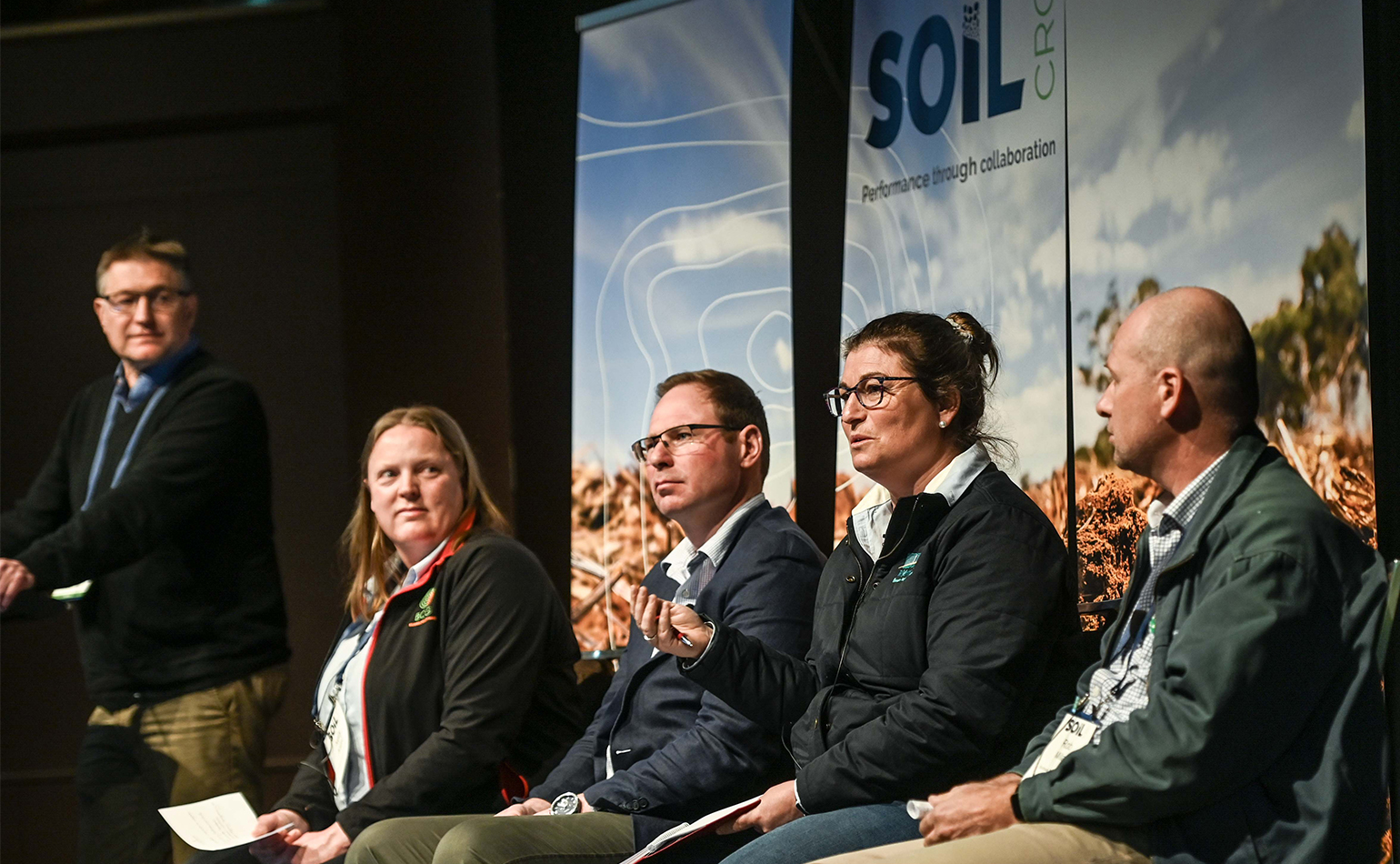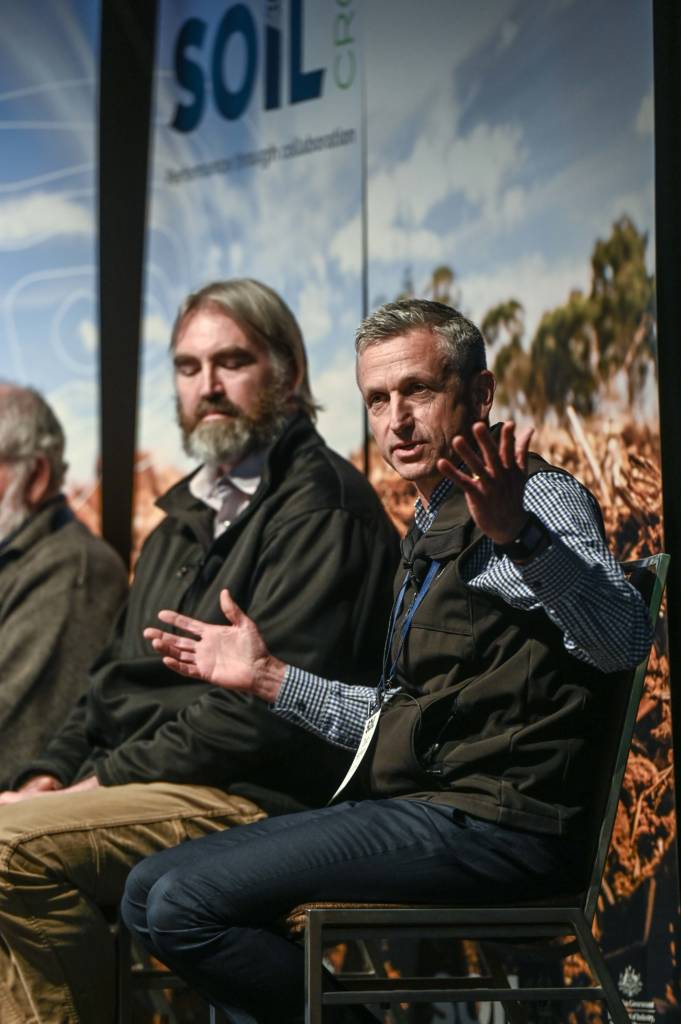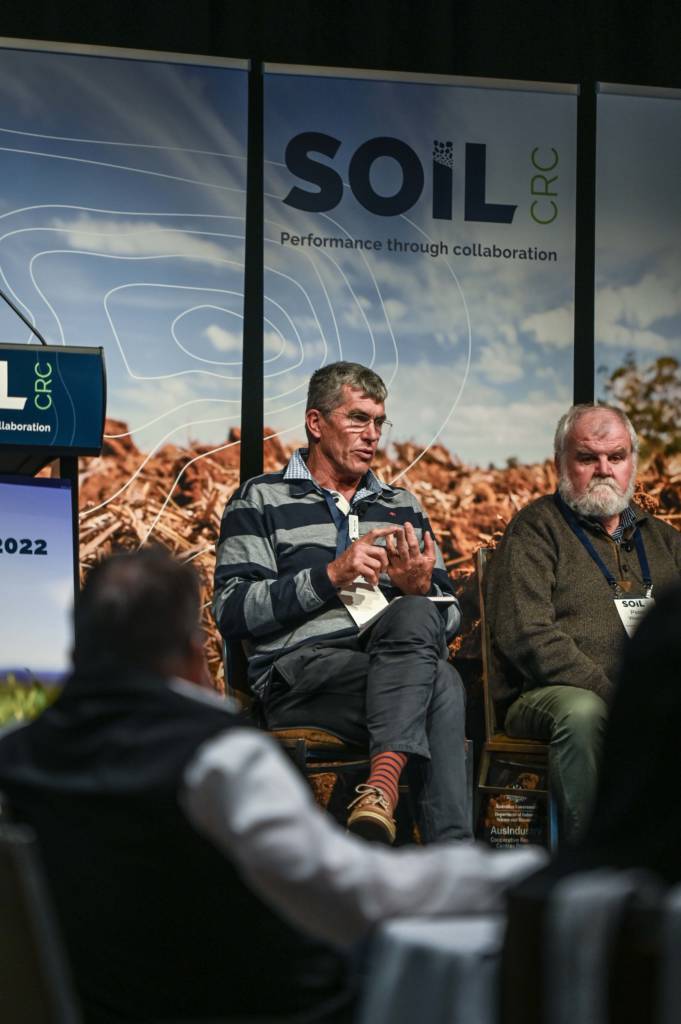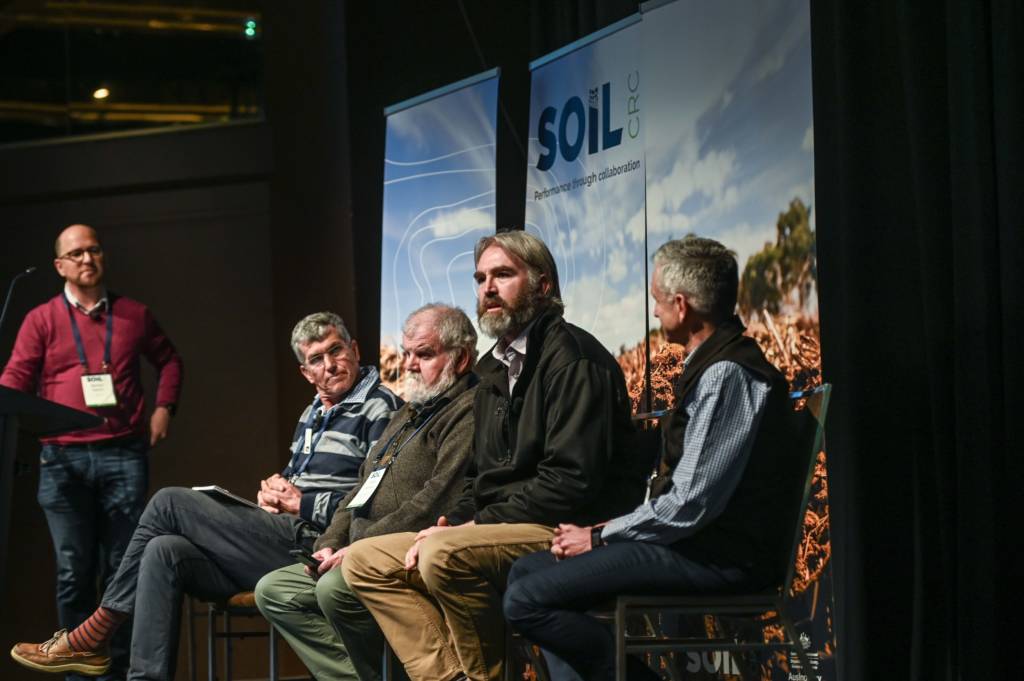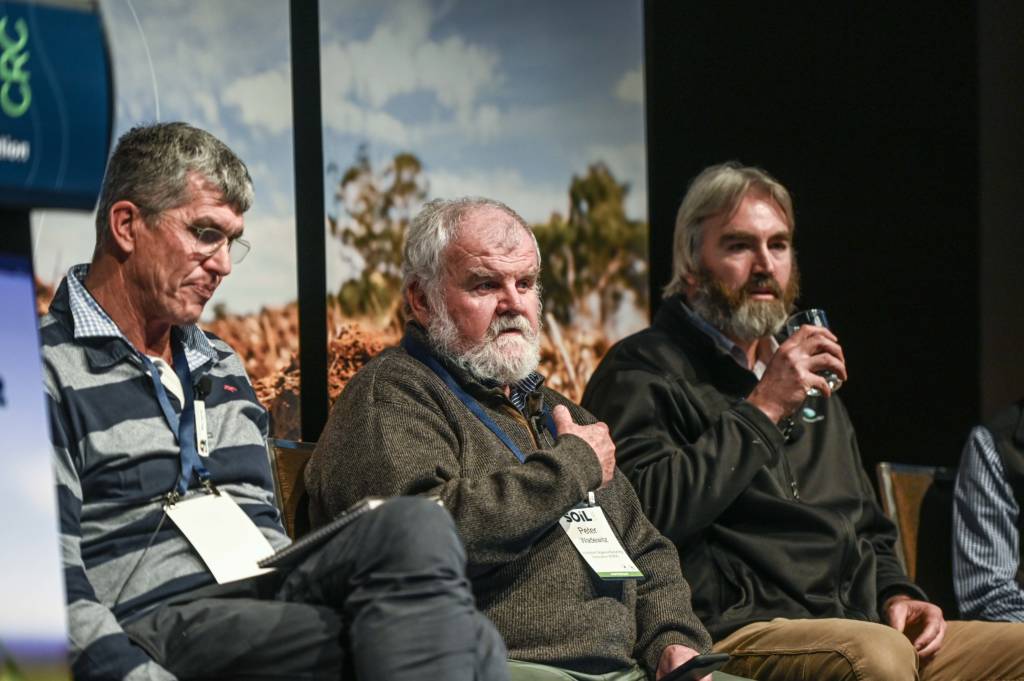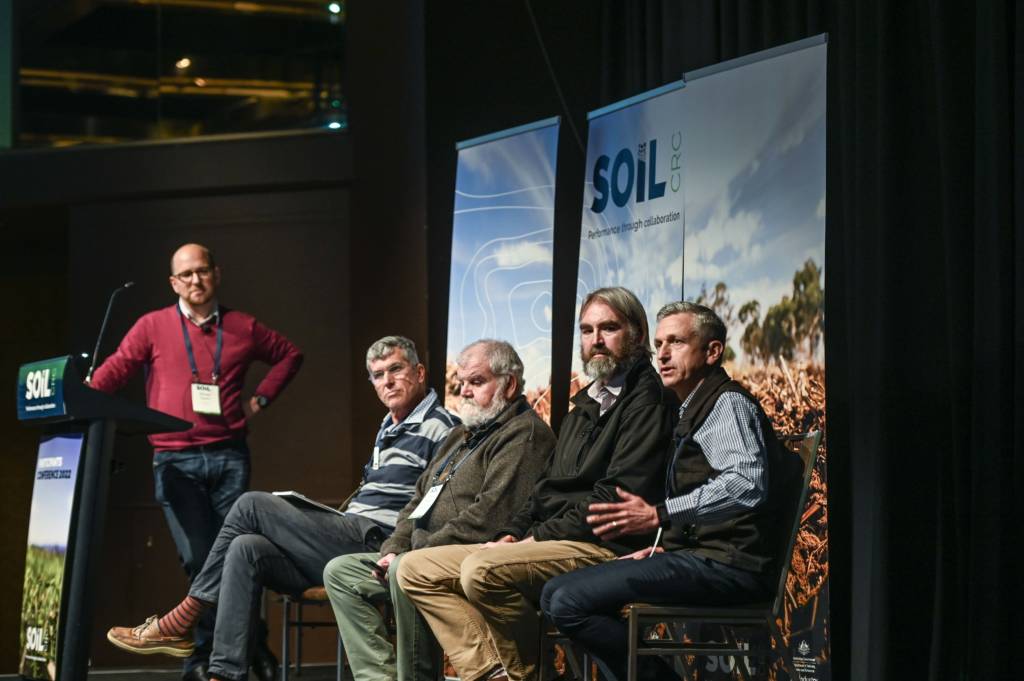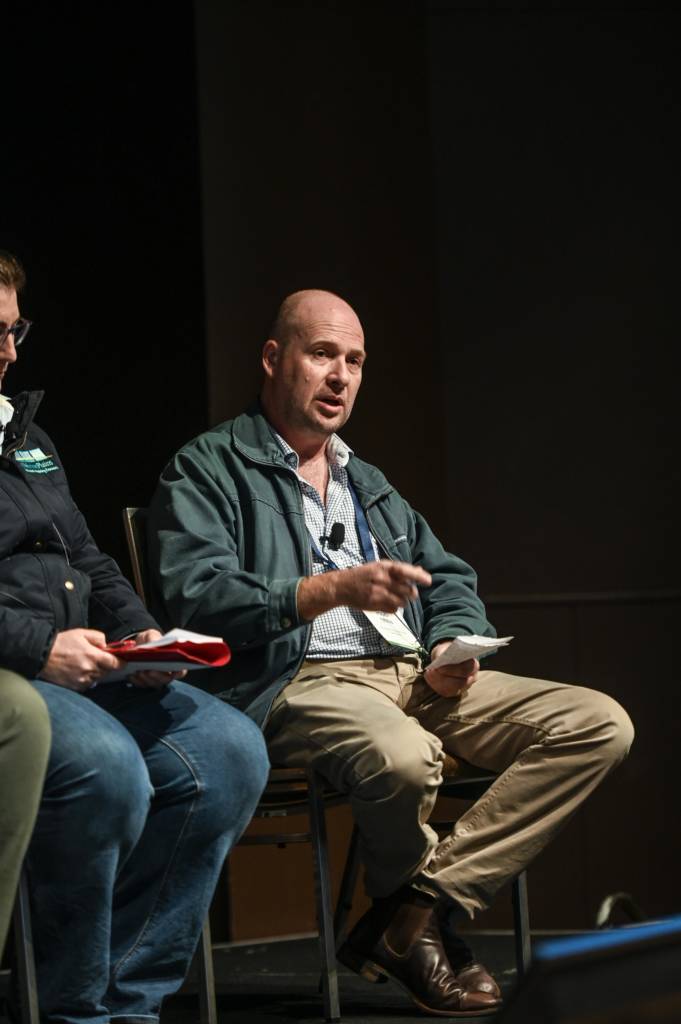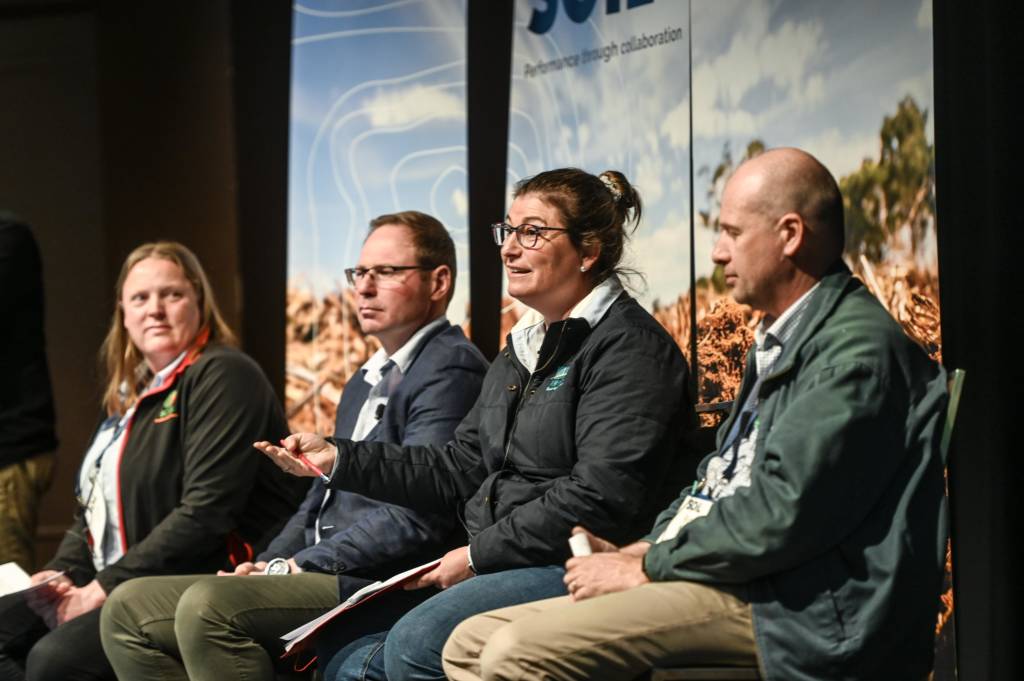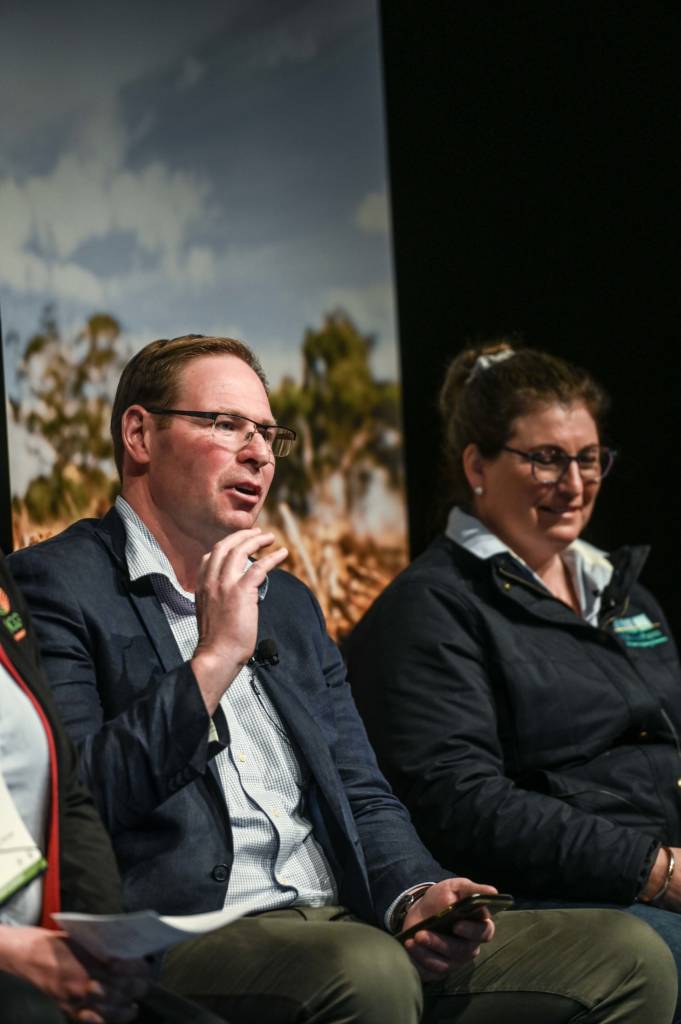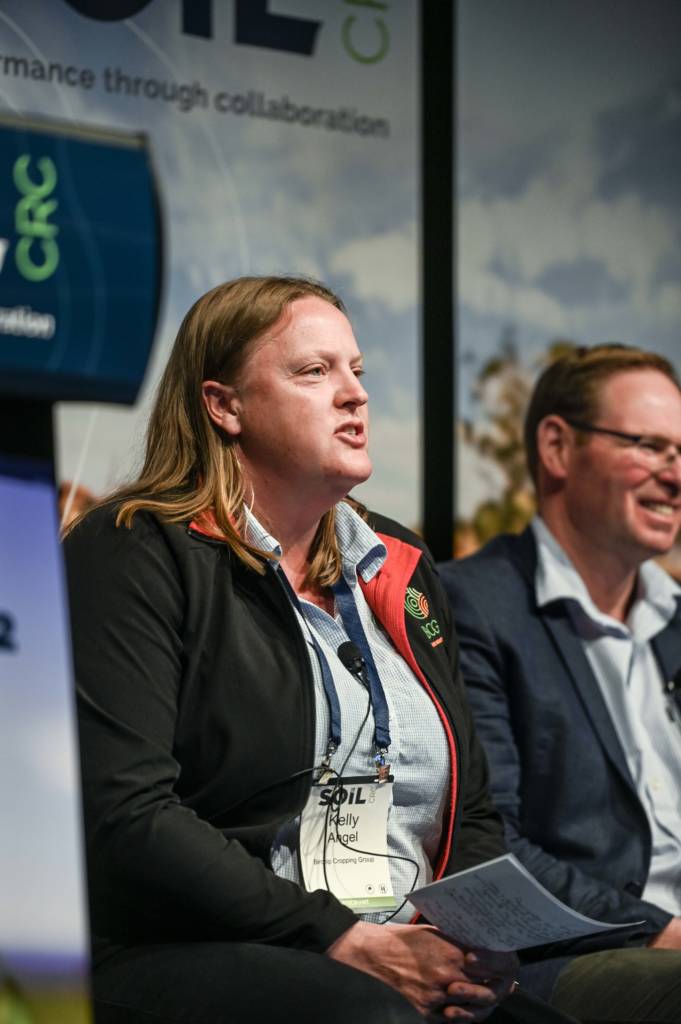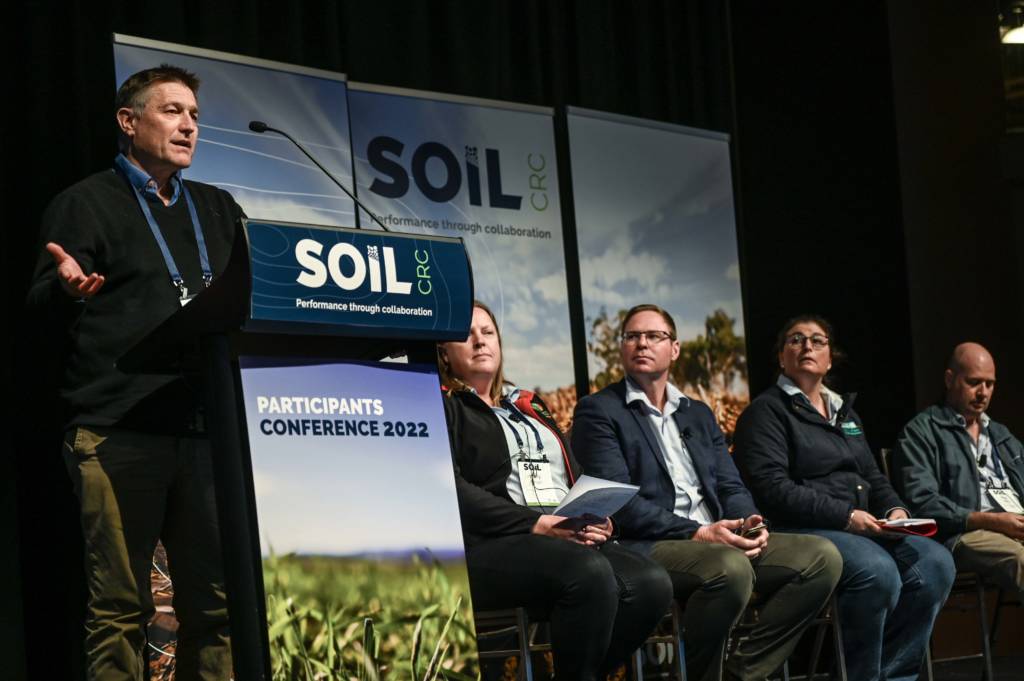There were two valuable panel discussions at the Participants Conference, providing both industry perspectives and farmer group perspectives on future opportunities for the Soil CRC.
One of the defining characters of all CRCs is bringing together industry and researchers, and these two panels showcased that collaboration in the Soil CRC.
The Industry Perspective Panel was chaired by Soil CRC Board member Simon Speirs, with the panel made up of Max Young, Chair of South Australia Grains Industry Trust (SAGIT), Dave Brennan, CEO of Wimmera CMA, Peter Wadewitz, National Chair of the Australian Organics Recycling Association (AORA) and David Bergmann, Research and Development Manager, South East Water.
Each organisation had slightly different reasons for participating in the Soil CRC. SAGIT’s involvement provides research value for their grain industry members. Wimmera CMA’s primary role is about the health of the catchment, and they see a strong link between the health of the soil and the health and profitability of the community. AORA are linking the compost industry with the Soil CRC to make sure that they are designing products that reflect the scientific research. South East Water are engaging with agriculture, through the Soil CRC, with a focus on biosolids research.
The benefits from their involvement in the Soil CRC varied. Ranging from gaining market intelligence through the Surveying farm practices project to collaboration with other organisations and delivering better products to farmers based on research.
Some of the challenges they are seeing are helping farmers to navigate the future low carbon economy, soil erosion, dealing with waste and soil contamination.
The panel discussed using biosolids for biochar and PFOS and PFAS contamination in soil and biochar. The challenges with legislation around using biosolids and the increasing difficulty in agricultural use were highlighted.
Discussions continued around heavy metal contamination and plastics in soils. Soil is one of the few environments in which some plastics will break down. But there is a risk is that it will break down into something more dangerous than the original product.
There was agreement that science is going to play a large role in the future of agriculture. There are challenges in getting research out to the paddock and making it economically feasible for famers. If we improve farms, we will help improve the environment.
Farmer Group Perspectives
The Farmer Group Perspectives panel was chaired by Soil CRC Board Member David Minkey, who is also the Executive Director at the Western Australian No-tillage Farmers Association (WANTFA). Panel members included Catherine Marriott, CEO of Riverine Plains, Rob Milla, Manager of Burdekin Productivity Services, Nathan Craig, Executive Officer from West Midlands Group and Kelly Angel, Senior Research Officer from Birchip Cropping Group.
David highlighted that farmer groups are all different with different funding models, but they all exist to serve their members. The four different farmer groups on the panel represented regions in New South Wales, Victoria, Western Australia and Queensland and covered different farming systems.
Each group also had different reasons for being involved in the Soil CRC, but the overall theme was to provide their members with research that will put them on the front foot.
Extension was the main topic of discussion. All groups thought it was of utmost importance, and that a rethink of extension is needed, to ensure it is not an afterthought. The extension model needs to be turned on its head and some creativity applied to it.
In the Soil CRC context, they saw this as involving farmer groups from the outset of projects, or even earlier, during the ideation stage.
Another part of extension is getting researchers to engage with farmers through events. However, the panel highlighted that scientists need to understand their audience and the take home message. They emphasised that if you don’t hit the mark with farmers, they will remember, therefore it is important to get communications right. Knowing your audience is vital. However when you get the right researcher, it can be an amazing opportunity for the farmers to ask questions and get engaged and excited.
Most farmer groups look to local researchers or those that have specific local experience to speak at their events. Building rapport with farmers is essential. This can take time and can include demonstrations and being there to help farmers when things go wrong. That is how there will be real uptake of the research.
Farmer groups provide a fantastic source of reality checking for researchers. Finally, the point was made that the best way to choose a researcher to speak to farmers is to ask farmers what they want.
Both panels provided really interesting discussions and perspectives that are vital to the Soil CRC and its future success. Watch the videos of the Industry Perspectives panel and the Farmer Perspectives panel.

